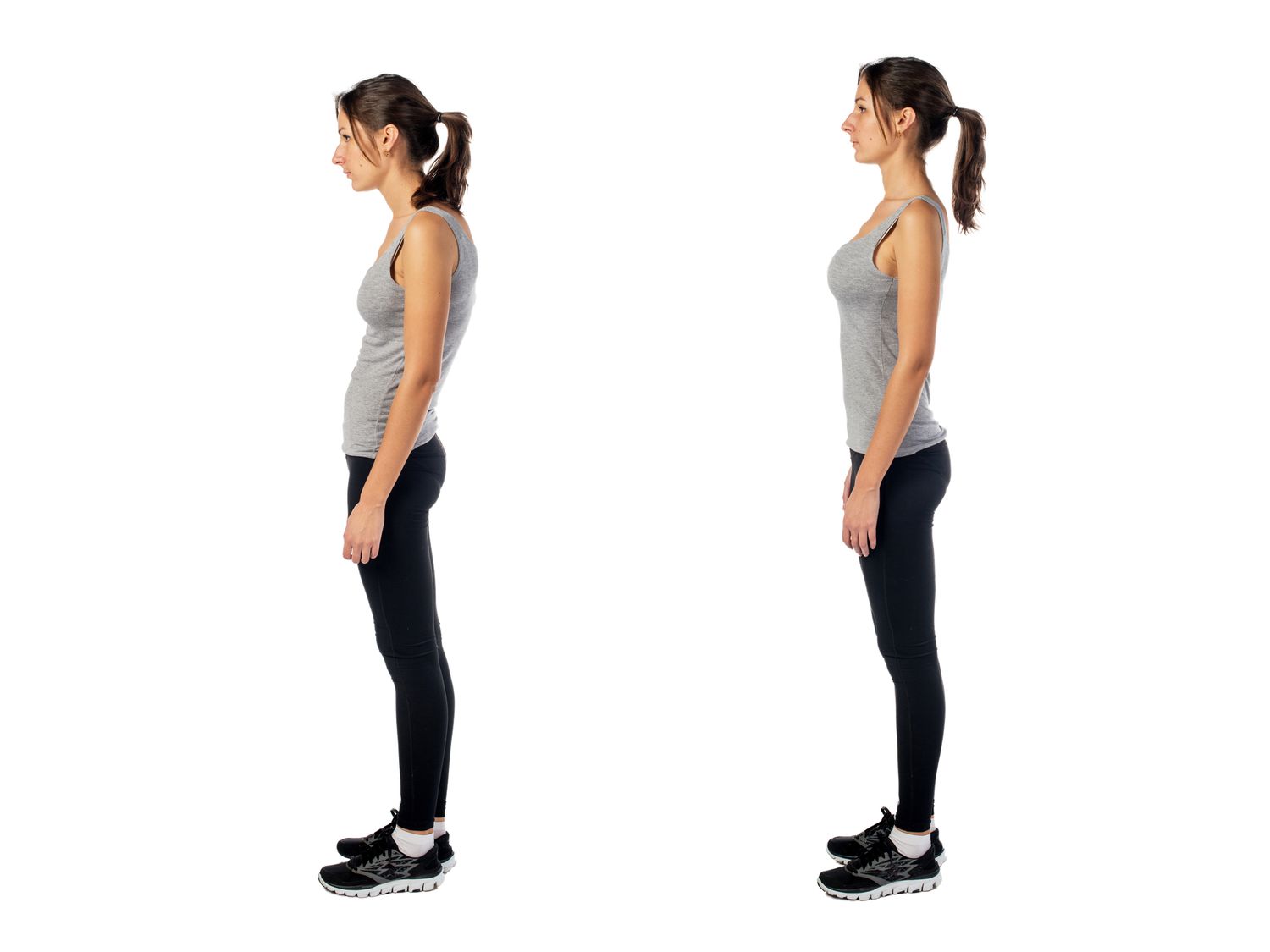Back
The Way You Stand Is Impacting Your Pelvic Floor
By Dr. Christine Martirez PT, DPT on 4/3/2024

Standing posture is more than just a matter of aesthetics; it profoundly influences the health and function of your pelvic floor. Common postural deviations, such as sway back posture and "butt gripping" posture, can create muscular imbalances that affect pelvic floor function. In this blog post, we'll explore how these postures impact the pelvic floor, the associated muscular imbalances, and how pelvic floor physical therapy can help restore balance and vitality.
Understanding Common Postural Deviations
Sway Back Posture:
Sway back posture is characterized by increased lumbar lordosis, anterior pelvic tilt, increased thoracic kyphosis, rounded shoulders, hips thrust forward, and a tummy pooch. This posture creates a sway in the lower back and places excessive strain on the lumbar spine."Butt Gripping" Posture:
"Butt gripping" posture involves constantly clenched glute muscles and a tucked pelvis. This posture is often seen in individuals who attempt to engage their glutes excessively, leading to a flattened lumbar spine and inhibited core activation. This is a very common posture seen postpartum.
Muscular Imbalances and Their Impact:
Sway Back Posture
Sway back posture can lead to tight hamstrings and back muscles due to the excessive curvature of the lumbar spine. Meanwhile, the abdominal muscles and hip flexors become weak and elongated, contributing to postural instability."Butt Gripping" Posture
In "butt gripping" posture, the glute muscles remain in a constant state of tension, leading to tightness and potential weakness over time. This posture also perpetuates weakness in the core muscles, as they are not appropriately engaged to support the spine.
The Connection to Pelvic Floor Health
Impact of Muscular Imbalances:
Muscular imbalances resulting from poor standing posture can place undue stress on the pelvic floor muscles. Tightness in the hip flexors and pelvic floor can occur due to the anterior pelvic tilt associated with sway back posture, while weakness in the core and glutes can compromise pelvic floor support.Pelvic Floor Dysfunction:
Imbalances in the surrounding musculature can contribute to pelvic floor dysfunction, including urinary incontinence, pelvic organ prolapse, and pelvic pain. Dysfunctional movement patterns and poor alignment exacerbate these issues, leading to further pelvic floor strain.
How Pelvic Floor Physical Therapy Can Help
Postural Assessment:
Pelvic floor physical therapists conduct a comprehensive assessment to evaluate standing posture and identify muscular imbalances contributing to pelvic floor dysfunction. This assessment includes observing alignment, muscle tone, and movement patterns.Muscle Re-Education:
Therapists prescribe targeted exercises to address muscular imbalances and restore optimal alignment. This may include strengthening exercises for weak muscles, stretching for tight muscles, and movement re-education to promote proper posture.Manual Therapy Techniques:
Manual therapy techniques such as myofascial release, trigger point therapy, and joint mobilization are used to release tension and improve mobility in the affected muscles and soft tissues.Functional Movement Training:
Pelvic floor physical therapy incorporates functional movement training to integrate postural corrections into daily activities. Therapists provide guidance on proper body mechanics and ergonomic adjustments to support pelvic floor health.
Postural Alignment for Pelvic Floor Health
Standing posture plays a significant role in pelvic floor health, and addressing postural deviations is crucial for restoring balance and vitality. By understanding the impact of common postural deviations, individuals can take proactive steps to improve their standing posture and support pelvic floor function. Through pelvic floor physical therapy, individuals can learn corrective exercises, receive manual therapy interventions, and adopt functional movement strategies to enhance postural alignment and optimize pelvic floor health. Don't let poor posture dictate your pelvic floor health; empower yourself with the knowledge and tools to stand tall and thrive.
If you're suffering from pelvic floor symptoms related to posture, please reach out to us at Pelvic Health Center in Madison, NJ to set up an evaluation and treatment! Feel free to call us at 908-443-9880 or email us at receptionmadison@pelvichealthnj.com.
Read More:
How Chronic Pelvic Congestion in Men Contributes to Prostatitis By Shannon Strauch, PTA, STMT-1 on 12/11/2024 How lymphatic issues can cause symptoms of prostatitis Prostatitis and Tight Pelvic Floor Muscles: A Comprehensive Guide By Shannon Strauch, PTA, STMT-1 on 12/10/2024 How a tight pelvic floor can be the reason for prostatitis symptoms
Are you ready to live pain free?
Request An Appointment